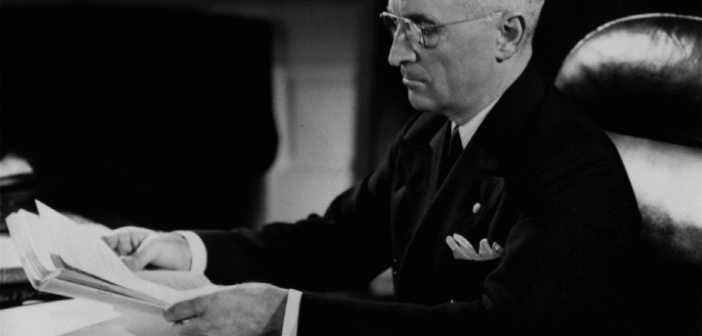On Jan. 31, 1950, President Harry Truman gave the Atomic Energy Commission permission to begin developing the hydrogen bomb, a weapon significantly more powerful than the atom bomb developed in 1945, two of which were dropped on Japan.
Unlike earlier weapons, the hydrogen bomb uses a nuclear device to trigger a second, more powerful thermonuclear reaction.
“IT IS part of my responsibility as Commander in Chief of the Armed Forces to see to it that our country is able to defend itself against any possible aggressor,” Truman said in a Jan. 31, 1950, statement archived by the University of California at Santa Barbara’s The American Presidency Project.
“Accordingly, I have directed the Atomic Energy Commission to continue its work on all forms of atomic weapons, including the so-called hydrogen or superbomb. Like all other work in the field of atomic weapons, it is being and will be carried forward on a basis consistent with the overall objectives of our program for peace and security.”
In a Feb. 1, 1950, New York Daily News story, Ted Lewis wrote Truman made his decision after the commission published information about its hydrogen nuclei experiments in a Congressional report. The report also reportedly said that scientific mastery of “atomic explosions” made an armageddon-inducing explosion “impossible.”
As noted by History.com, Truman’s announcement followed two political cataclysms: a successful Soviet atomic bomb test in Kazakhstan in 1949, and the discovery that US nuclear program scientist Klaus Fuchs was a Soviet spy.
In response to the announcement, the National Security Council published a report entitled “NSC 68: United States Objectives and Programs for National Security” on April 7, 1950. You can read the full text online, courtesy of TeachingAmericanHistory.org, here.
Truman’s decision eventually led to the creation and Nov. 1, 1952, detonation of “Mike” on an island called Elugelab in the Marshall Islands’ Eniwetok Atoll, as recounted by PBS.com.




